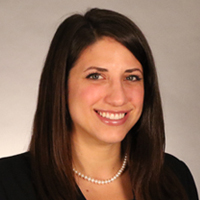Explaining Virginia’s Parental Choice Education Savings Accounts (PCESA) Bill
After narrow defeat in 2015, Virginia may become the sixth state to adopt innovative education savings accounts (ESAs).
The Virginia legislature passed a statewide ESA for students with special needs, HB 389, earlier this month. The Parental Choice Education Savings Account (PCESA) program now awaits Gov. Terry McAuliffe’s signature. If signed, HB 389 will provide families of children with disabilities the ability to fully tailor their children’s education to their individual learning needs.
HB 389 was authored by Del. Dave A. LaRock, with Co-Sponsors Del. Robert B. Bell, Del. Richard P. Bell, Del. Kathy J. Bryon, Del. Benjamin L. Cline, Del. Mark L. Cole, Del. Christopher E. Collins, Del. M. Kirkland Cox, Del. C. Matt Fariss, Del. Peter F. Farrell, Del. Nicholas J. Freitas, Del. Thomas A. Greason, Del. William J. Howell, Del R. Steven Landes, and Del. Daniel W. Marshall III.
Gov. Terry McAuliffe vetoed this bill on April 5, letting down families of children with disabilities statewide.
The sections below represent the key details of this education savings account legislation.
STUDENT ELIGIBILITY
Students in the Commonwealth who are identified as having learning disabilities pursuant to section § 22.1-214 of the Virginia Code, which include an intellectual disability or serious emotional disturbance, physical disability, speech impairment, hearing impairment, visual impairment, autism spectrum disorder, or a specific learning disability are eligible for the PCESA. Eligible students also must have been enrolled in preschool or K–12 public school for one full semester prior to application. Exceptions to the prior public school rule include students who were residents of another state prior to application.
Students who are awarded a PCESA are not eligible to participate in Virginia’s Education Improvement Tax Credits (EITC) program, and current EITC scholarship students are only eligible for the PCESA if they leave the EITC program and meet PCESA qualifications.
STUDENT FUNDING
PCESA program participants receive 90 percent of the Standards of Quality (SOQ) per-pupil state funds that would have been spent on a student in public school. Those funds are placed into a government-authorized savings account for eligible families to direct toward restricted, but multiple, uses. The Virginia Department of Education will determine the state share of per-pupil funding based on the General Appropriations Act that is current as of July 1.
The Commonwealth spent $11,242 per student in the 2015–16 school year. The PCESA would only use $3,625 of that amount based on variable costs within the school that are dependent on the amount of students enrolled, such as transportation and supplies. The remaining funds are retained by the Commonwealth.
ALLOWABLE USES
Eligible PCESA families may direct their share of PCESA funds solely for one or more of the following expenses:
- Tuition, fees, or required textbooks at a qualified private school
- Educational therapies or services
- Private tutoring
- Curriculum
- Online learning
- Testing fees for AP courses, nationally standardized norm-referenced tests, or college entrance examinations
- College tuition, fees, and textbooks
- Fees for management of savings accounts by approved firms or nonprofits
- Individual public school classes or extracurricular activities
- Surety bond payments
- Transportation
- Approved school supplies and services
Any unused funds in the PCESA account may be rolled into the next year, and upon graduation may be used for tuition at a higher education institution for a four-year period. If the student is not enrolled in higher education or graduated from secondary school four or more years previously, the account is closed and remaining funds returned to the Commonwealth.
REGULATIONS ON PARENTS and PROVIDERS
Each public school district is required to report to the Superintendent of Public Instruction the number of students in the school district whose parents have received a PCESA and the amount of funds in the savings account by November 1.
Participating PCESA families are required to submit all applicable receipts and invoices for funds spent from the savings account to the resident school district for review. The Department of Education and district will decide on the process of submission. PCESAs will be subject to annual audits by the Virginia College Savings Plan.
The Virginia College Savings Plan may contract, directly or indirectly, with private scholarship foundations, nonprofits, or private financial management firms to manage the PCESA.
The bill provides protections from the state to participating providers, such as:
- The Commonwealth may not exercise control or supervision over a private school program or homeschool instruction paid for by a PCESA
- No PCESA program provider may be considered an agent of the state or federal government
- No qualified school shall be required to alter its creed, practices, admissions policies, or curriculum in order to receive PCESA funds
- Following legal proceeding, Commonwealth cannot impose any undue burden on a qualified school
The PCESA bill has a reenactment clause by the 2017 Session of the General Assembly.
NEXT STEPS
No further action may be taken this legislative session.
Revisit this blog post regularly for updates on this bill’s progress. To be the first to know about legislative updates, please follow us on Twitter @edchoice or join our email list by signing up at the bottom of this page.




